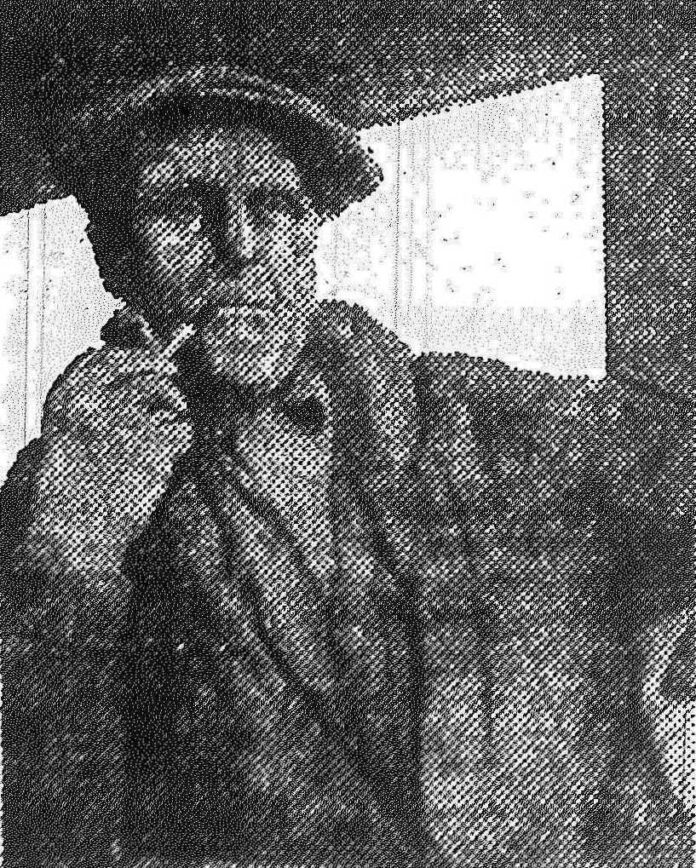Stories We Tell
By David Wright
Town Historian
Even though widely forgotten today, James M. Lally will ever factor large in Stratford’s history, as he was Stratford’s last First Selectman. James was born to Irish immigrant parents in 1871. James’ parents came to America and established their home in Paradise Green in 1857. James was one of seven children, and he attended Stratford’s public school system until he was 16 years old. He then entered the first phase of his working life.

James entered into politics as the town’s tree warden, in 1909, then was elected to selectman in 1913. James was elected First Selectman in 1915, succeeded himself for an additional term, then, was defeated for a third term. In 1919 he ran for First Selectman, again, and this time held the position until Stratford’s government changed to a Town Manager/Council form in 1921.
James served his town, faithfully, during what was, almost assuredly, the town’s most challenging period. Stratford’s population soared from 5,712 in 1910 to 12,347 in 1920. No other decade in Stratford’s history has experienced a 216% growth rate. Due to all the people moving into town, Stratford was building a new school, or adding on to an existing school, nearly every year of James’ political career.
Stratford “went dry” in October of 1917 and stayed dry until prohibition was repealed. However, liquor and distillery confiscations in town kept the local gendarmerie very busy during Stratford’s dry years. Liquor and distillery confiscations rose 300% from 1919-1926.
The first sewers and power lines were laid during James’ years of public service. A feeling began, and grew increasingly more ardent through the 1930s, to jettison Avon Park and Hollister Heights to Bridgeport. Stratford felt it was too expensive to provide services to these parts of town where so little was collected in taxes.
Women were granted the right to vote in 1920. In Stratford, that meant women were able to change the form of Stratford’s government to a Manager-Council form. The majority of politically connected men opposed changing the form of government preferring a closer alignment with Bridgeport.
The Stratford town Republican Party was ripped asunder by Judge Charles Peck in 1917 as he formed his own “sub-party” in retaliation for those who supported his “ouster” as longtime Stratford Probate Judge. The party was further challenged by a progressive wing, following in the Bull Moose tradition.
A whooping cough epidemic raged through Stratford in1917. A draft was instituted for World War I in 1917 which was the first military draft since the Civil War. James Lally registered for the draft. A troubling coal shortage struck the northeast which caused businesses and the town offices to reduce their hours. Along with the coal shortage, many residents of Stratford were facing food shortages.

After just establishing the Stratford Police Force, Chief Nichols was swept into the military draft. Mr. Lally had to face the prospect of losing his new police chief for an indeterminate period of time, and having the police force reduced by at least one officer.
Personal loss over-shadowed much of James’ political life. His mother passed away in 1913, and his uncle passed in 1917.
Less life-threatening, but no less time consuming, prominent and influential citizens were fighting the State Utilities Commission over the widening of East Broadway in order to “double-track” the street for increased, and improved, trolley traffic to Ferry Boulevard.
In the middle of all these many challenges, James Lalley surprised his friends when he married Brooklyn school teacher, Ella Harman, on January 22nd, 1918 in New York City. James made his first home with Ella at 117 Warwick Avenue.
James’ commitment to his hometown extended well-beyond his duties as Selectman. When the Kubiscko family was evicted in March of 1916, James went to work to assist them in finding a new place to live. When funding was tough to come by for a new fire truck, James went to Hartford in 1917 to plead the town’s case. When construction help was needed for town projects, James freely lent his time and expertise.
Last, but perhaps best, Stratford’s last First Selectman’s contributions to the town were legendary.


hi my name is donna conroy
I volunter at the stratford historical hictorical society
for quite awhile and would like to learn more about the history
so how do I get in touch with david wright and do what he does
please let me know ok
Sincerely
donna conroy